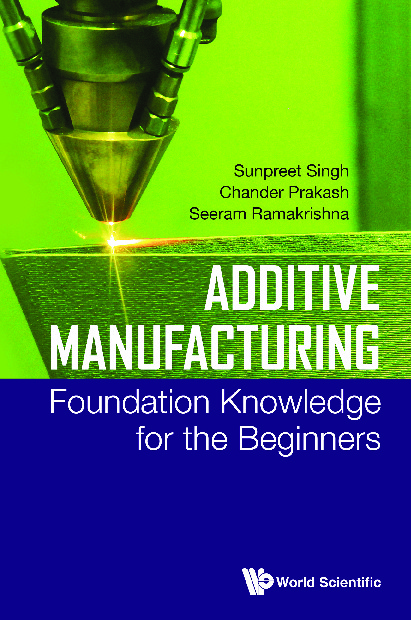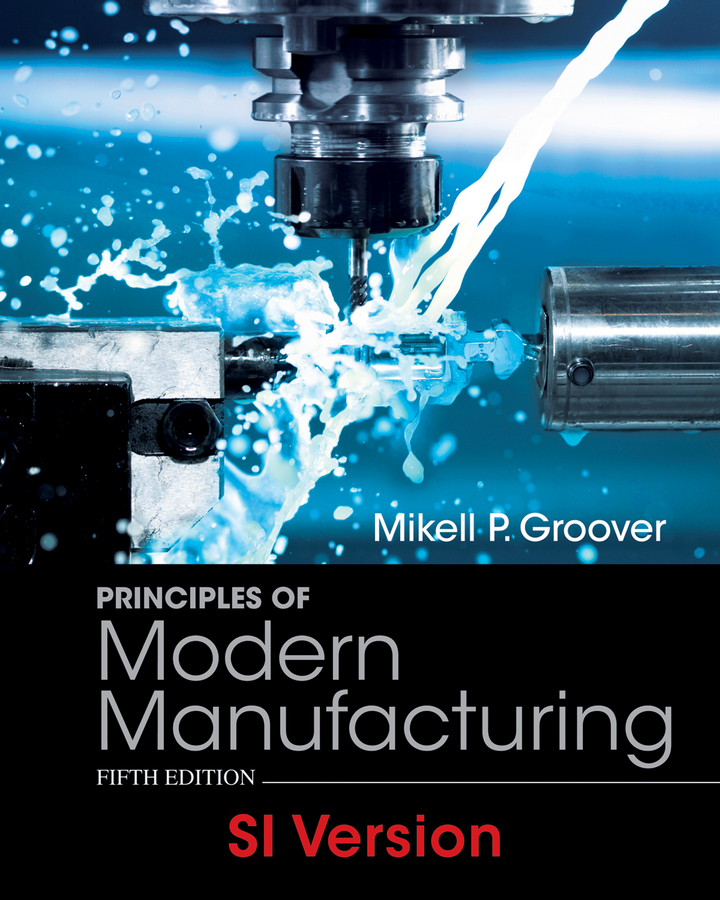CLCTH16
LanguageENG
PublishYear2020
publishCompany
WSPC
EISBN
9789811224829
PISBN
9789811224812
- Product Details
- Contents
- More About the Author
This book provides the key fundamental principles, classifications, recent developments, as well as different applications of additive manufacturing technologies. A comprehensive overview of the different classes is given, covering polymer-based, metal-based and ceramic-based systems. Special topics such as bioprinting and 4D printing are also introduced. The authors discuss the technological aspects of additive manufacturing in a very clear and understandable way, delivered with the help of self-illustrating artworks. This book is particularly designed to suit the curriculum requirements of undergraduate and graduate students enrolled in Mechanical Engineering, Material Science, Product Design and Development, Biomedical Engineering, Automobile and Aerospace Engineering, and other closely related domains. Manufacturing professionals working in similar fields may also wish to read it as a refresher and to catch up on recent advances.
Dr Sunpreet Singh is a Research Fellow at the Department of Mechanical Engineering, National University of Singapore, working on the 3D printing of high-performance thermoplastics. He has developed various polymeric feedstock materials for specialized engineering and biomedical applications. During his extensive research experience with 3D printing technology, he has contributed more than 100 research articles in various reputed journals including Springer, Emerald, Elsevier, Wiley, and others. He has filed several patents and edited more than 10 scientific books, including Biomanufacturing (Springer, 2019), 3D Printing in Biomedical Engineering (Springer, 2020), and Functional Materials and Advanced Manufacturing (CRC Press, 2020). He is the guest editor of several journals. During his teaching tenure, he has taught 'Reverse Engineering and 3D Printing' and '3D Printing Technology' to undergraduate students. He received the Research Excellence Award for the year 2017–2018 from Lovely Professional University, India.Dr Singh was recently interviewed by Asia Pacific Biotech News on 3D printing. Read more here: .Dr Chander Prakash is Associate Professor and Head of the Industrial Engineering Department in the School of Mechanical Engineering at Lovely Professional University, India. He is a lifetime member of the Institution of Engineering and Technology (IET) and the Indian Science Congress Association (ISCA). He holds 13 patents, and has published more than 100 articles in peer-reviewed international journals and conference proceedings. He is also the guest editor of 10 books, including Biomanufacturing (Springer, 2019), 3D Printing in Biomedical Engineering (Springer, 2020), and Functional Materials and Advanced Manufacturing (CRC Press, 2020). Dr Prakash's research concentrates on the synthesis/development, surface modification, and advanced/precision machining of metallic and non-metallic biomaterials. He explores three main research directions: synthesis/development of magnesium/titanium-based biodegradable alloys and composites, surface modification of biodegradable polymeric and magnesium/titanium-based biomaterials, and precise and advanced machining of biomaterials using electric discharge machining, magnetic abrasive finishing, and diamond turning processes.Professor Seeram Ramakrishna, FREng is the Director of Center for Nanofibers and Nanotechnology at the National University of Singapore (https://www.nature.com/articles/nj0232.pdf?draft=marketing). He is regarded as the guru of electrospinning and nanofibers (http://nart2020.com/conferenceinfo/). Microsoft Academic ranked him among the top 36 salient authors out of three million materials researchers worldwide (https://academic.microsoft.com/authors/192562407). He is named among the World's Most Influential Minds (Thomson Reuters), and the Top 1% Highly Cited Researchers in materials science and cross-field categories (Clarivate Analytics). He received his PhD from University of Cambridge, UK; and The TGMP from Harvard University, USA. He is appointed as the Honorary Everest Chair of MBUST, Nepal. He is an elected Fellow of UK Royal Academy of Engineering (FREng); Singapore Academy of Engineering; Indian National Academy of Engineering; ASEAN Academy of Engineering & Technology; International Union of Societies of Biomaterials Science and Engineering (FBSE); Institution of Engineers Singapore; ISTE, India; Institution of Mechanical Engineers and Institute of Materials, Minerals & Mining, UK; American Association of the Advancement of Science; ASM International; American Society for Mechanical Engineers; American Institute for Medical & Biological Engineering, USA; and International Association of Advanced Materials (FIAAM). He chairs the Circular Economy taskforce at NUS, and is a member of Enterprise Singapore's and International Standards Organization's Committees on ISO/TC323 Circular Economy and Circularity. He is the Editor-in-Chief of Springer NATURE journal Materials Circular Economy. He is an editorial board member of Springer NATURE journal Advanced Fiber Materials; Elsevier Journal Current Opinion in Biomedical Engineering; and NATURE Scientific Reports. He is an opinion contributor to the Springer Nature Sustainability Community (https://sustainabilitycommunity.springernature.com/users/98825-seeram-ramakrishna/posts/looking-through-covid-19-lens-for-a-sustainable-new-modern-society).
Collected by











